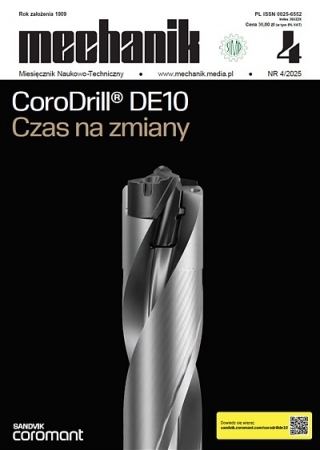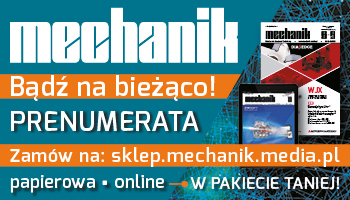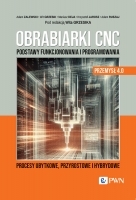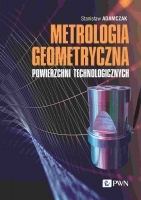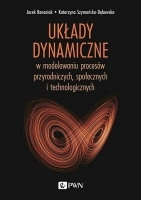Integration of modular production support units with the MES system
Integracja modułowych jednostek wsparcia produkcji z systemem MES *
Mechanik nr 02/2025 - CAD/CAM/CAE
ABSTRACT: Automation is a key method for improving efficiency, reducing costs, and enhancing manufacturing quality. D&H Innovations Ltd. developed an innovative system of Production Support Units, enabling flexible configuration of production cells and expansion of their functionality through work cells albo production lines standardized module management. The system’s software coordinates and controls the modules’ operation. By reducing operator tasks, the system significantly lowers the need for supervisory and operational staff. This solution results from analyzing the manufacturing process structure from a business perspective, ensuring full integration with the MES (Manufacturing Execution System) and continuity in production.
KEYWORDS: production efficiency and quality; modular production support units; integration with the MES system
STRESZCZENIE: Automatyzacja jest kluczową metodą poprawy efektywności, redukcji kosztów i jakości procesów wytwórczych. Firma D&H Innovations opracowała innowacyjny system Jednostek Wsparcia Produkcji, który umożliwia elastyczną konfigurację gniazd produkcyjnych i rozszerzanie ich funkcjonalności poprzez standaryzowane zarządzanie modułami. Oprogramowanie systemu koordynuje i steruje pracą modułów. Dzięki redukcji czynności operatorów system znacząco zmniejsza zapotrzebowanie na personel nadzorujący i obsługujący proces. Rozwiązanie to jest efektem analizy struktury procesu wytwórczego z perspektywy procesów biznesowych, zapewniając pełną integrację z systemem MES (Manufacturing Execution System) i ciągłość produkcji.
SŁOWA KLUCZOWE: wydajność i jakość produkcji; modułowe jednostki wsparcia produkcji; integracja z systemem MES
BIBLIOGRAFIA / BIBLIOGRAPHY:
[1] Jaskó S., Skrop A., Holczinger T., Chován T., Abonyi J. (2020). Development of manufacturing execution systems in accordance with Industry 4.0 requirements: A review of standard – and ontology-based methodologies and tools. Computers in Industry, 103300.
[2] Abdel-Aty, T.A., Negri, E. (2024). Conceptualizing the digital thread for smart manufacturing: A systematic literature review. Journal of Intelligent Manufacturing, 35, 3629–3653.
[3] Zwolińska, B., Tubis, A.A., Chamier-Gliszczyński, N., Kostrzewski, M. (2020). Personalization of the MES System to the Needs of Highly Variable Production. Sensors, 20, 6484.
[4] Paul, M., Kerkhoff, F., Ballenberger, T., Reinbold, N., Reinhart, G. (2025). Remanufacturing implementation on the shop floor – Insights from an industrial perspective. Sustainable Production and Consumption, 54, 215–226.
[5] Mantravadi, S., Møller, C. (2019). An Overview of Next-generation Manufacturing Execution Systems: How important is MES for Industry 4.0? Procedia Manufacturing, 30, 588–595.
[6] Rame, R., Purwanto, P., Sudarno, S. (2024). Industry 5.0 and sustainability: An overview of emerging trends and challenges for a green future. Innovation and Green Development, 3(4), 100173.
[7] Mohamed, M.M., Alraddadi, A.S. (2024). Agile Factor Flexible Industry 4.0 with MES Manufacturing Execution System Along with ERP Back-End Integration: Ready-Made Garments as a Case Study. American Journal of Operations Research, 14, 137–150.
[8] Peng, Q., Shi, H., Cong, W. (2024). Artificial Intelligence Manufacturing Execution System (MES) Unit Control in Automation Application Fusion Industry and Education Platform Design Innovation Exploration. Applied Mathematics and Nonlinear Sciences, 9(1), 1–14.
[9] Zawada-Tomkiewicz, A., Tomkiewicz, D., Pela, M. (2022). Identification of a Workpiece Temperature Compensation Model for Automatic Correction of the Cutting Process. Materials, 15, 8372.
DOI: https://doi.org/10.17814/mechanik.2025.02.1
* Artykuł recenzowany






